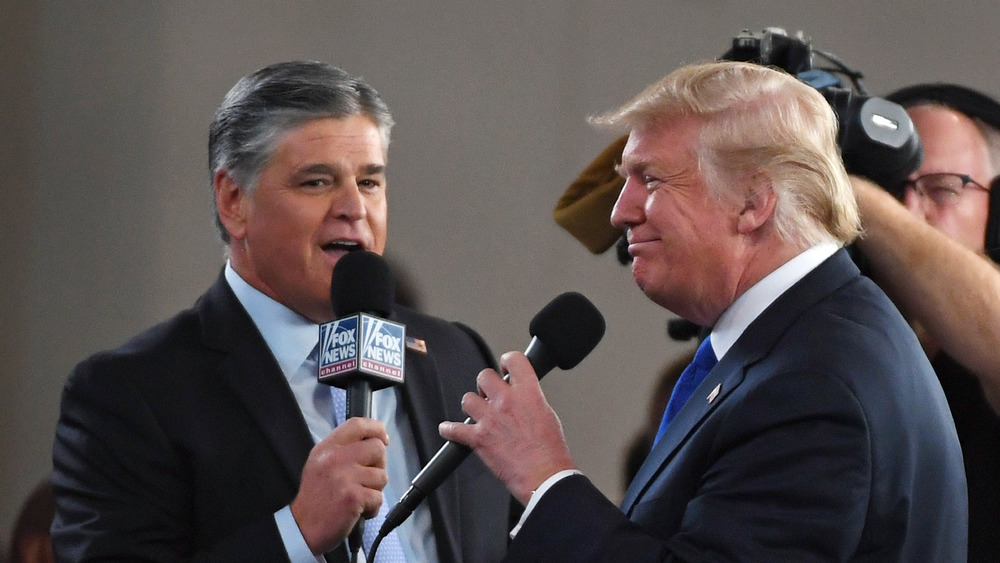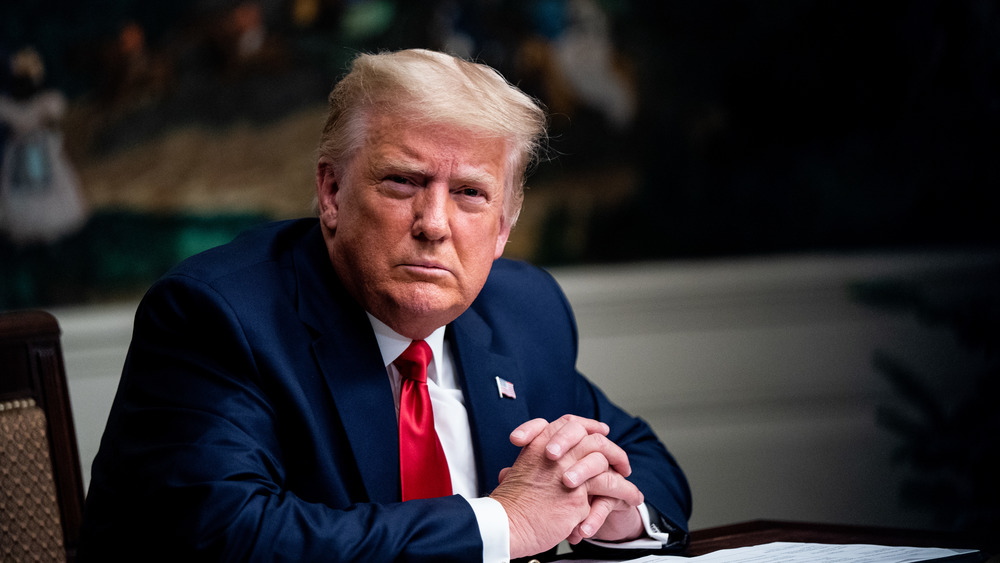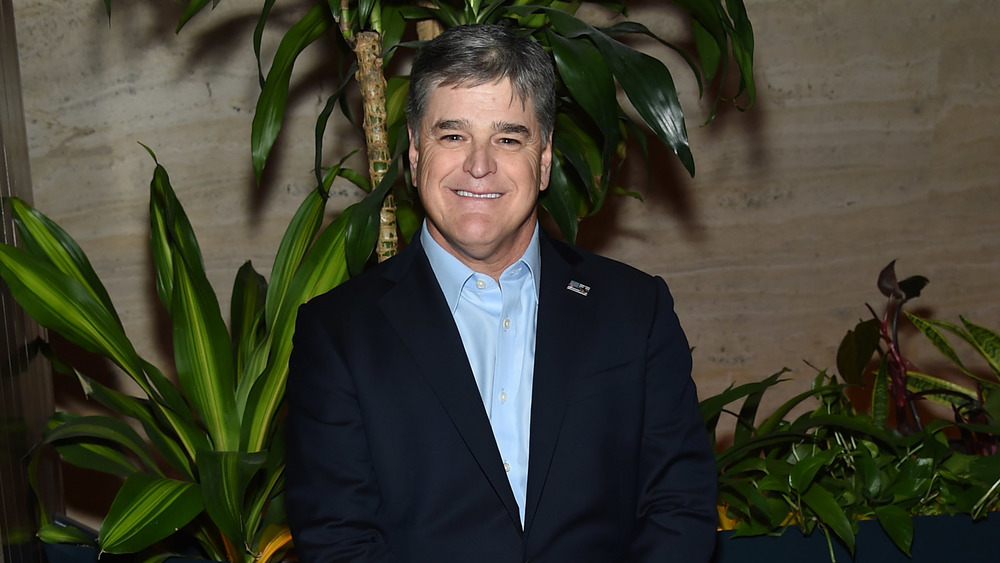Sean Hannity's Message To Trump Is Raising Eyebrows
As his term in office comes to an end, supporters are urging President Trump to preemptively pardon himself and his family members to avoid what NPR describes as, "serious potential legal issues once he is out of office and no longer enjoys the privilege of not being indicted by federal prosecutors."
Earlier this week, Fox News host Sean Hannity, made waves after it was reported by HuffPost that he seemingly urged the president, who is also a frequent listener and fan of his conservative radio show, to use his remaining time in office to, as he put it, "pardon his whole family and himself because they want this witch hunt to go on in perpetuity, they're so full of rage and insanity against the president."
This comes on the heels of President Trump's pardon of retired General Michael Flynn last week, which according to CNN has resulted in rumors swirling around the White House that this is only the tip of the iceberg in what will be a series of pardons to take place in the next month and a half.
While President Trump certainly has the constitutional right to issue pardons and likely will up until his last day in office, the controversy stems from whether or not a sitting president can actually pardon himself as no other president has ever attempted it before.
There is no definitive answer on whether the president can actually pardon himself
Although he is facing a slew of legal battles come January 21st, President Trump seems unperturbed even with the Michael Cohen case looming over his head. In a tweet from 2018 he asserted, "As has been stated by numerous legal scholars, I have the absolute right to PARDON myself, but why would I do that when I have done nothing wrong?"
And while the president's pardoning powers are far reaching and absolute, the question of pardoning oneself isn't so clear cut. In 1866 the Supreme Court ruled that the president's pardoning powers are "unlimited" except in cases of impeachment, and they "extend to every offense known to the law, and may be exercised at any time." That sounds almost definitively like he can preemptively pardon himself from future indictments, but in 1974, just before Nixon resigned during the Watergate scandal, a legal memorandum drafted by the Justice Department asserted that no president can pardon himself under the basic legal principle that "no one may be a judge in his own case" (via Wall Street Journal).
Legal scholars have debated the issue of self-pardons and the constitutional language and subsequent Justice Department memorandum with no clear cut result, and unless and until a president attempts it and is indicted subsequent to his own self-pardon will the issue ever be brought before a court.
Sean Hannity seems to be trying to normalize the idea of a president pardoning himself to the public
To the extent that the more you talk about something the more normal and less sensationalized it becomes, Sean Hannity seems to be raising the issue of a Trump self-pardon in an effort to legitimize what he describes as the only resolution to the Democratic "witch hunt" for Trump and his family.
On Monday's radio broadcast Hannity declared to fans of the president's pardoning powers, "I assume that the power of the pardon is absolute, and that he should be able to pardon anybody that he wants to." While that sweeping statement doesn't exactly offer more than an opinion, it's just controversial enough to bring the issue to the forefront of media attention, thus making it a normal talking point in the average American's parlance.
The fact is with less than fifty days in office, the words pardon and self-pardon have come up in the media a lot, and with the transition of political power not going as smoothly as the American people would like it to, a self-pardon by President Trump might actually satisfy both sides of the political fray — business as usual for the unconventional president to his adversaries who are anxiously awaiting the transfer of power, and the only fair solution to conceding the perceived fraudulent election for his loyalists.


